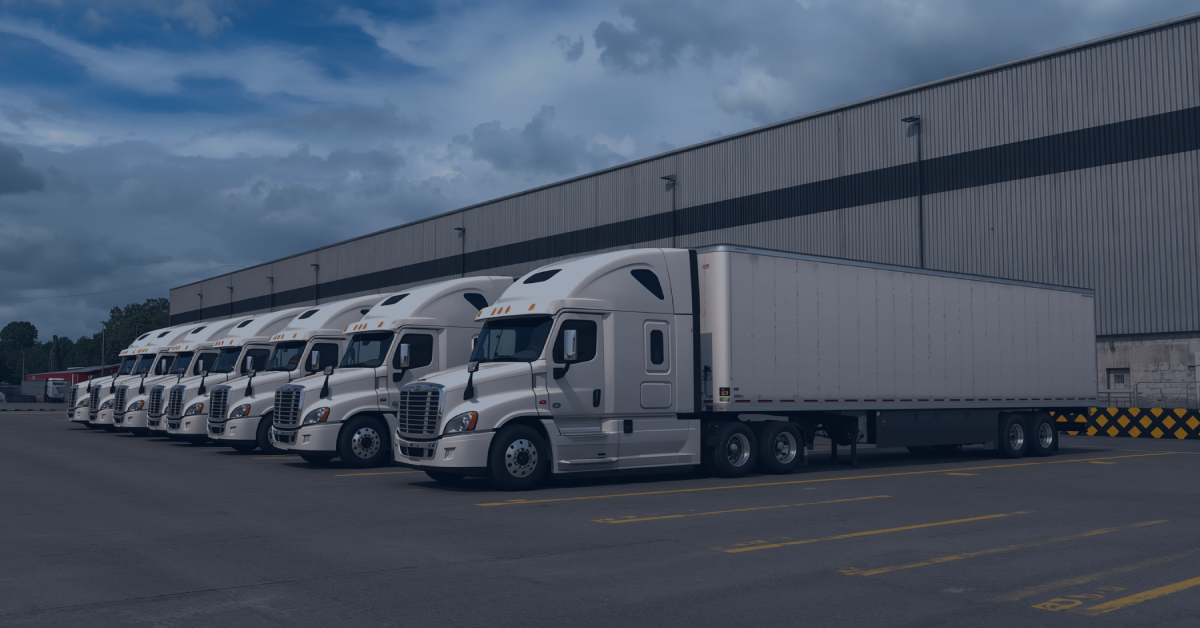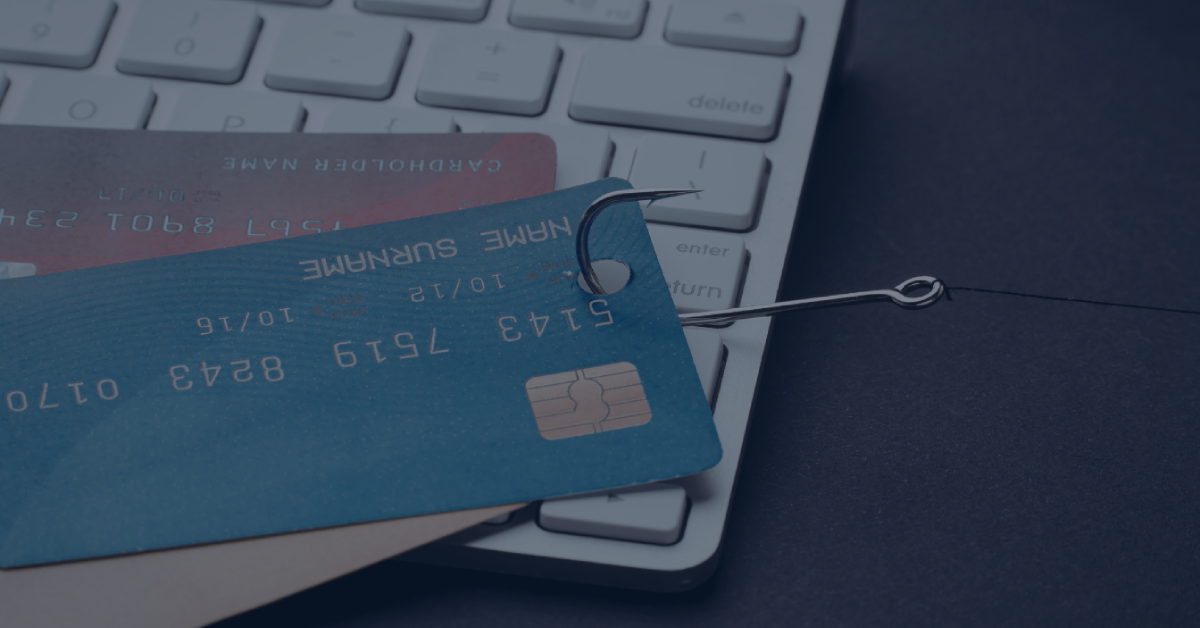Fuel cards are payment tools that help trucking companies, fleets, and owner-operators save money on fuel purchases while controlling costs and tracking expenses. Unlike regular credit cards, fuel cards offer specific benefits for the transportation industry, including fuel discounts, detailed reporting, and purchase controls. In this guide, we'll explain how fuel cards work, from application to daily use, and show how the OTR Fuel Card can help you save up to $2.25 per gallon.
Table of Contents
- What Is a Fuel Card?
- How Do Company Fuel Cards Work?
- How Do Fleet Fuel Cards Work for Trucking Businesses?
- How Do Fuel Cards Work for Employees?
- Key Features of Fuel Cards
- Benefits of Using a Fuel Card for Trucking Companies
- How to Choose the Right Fuel Card for Your Business
- Simplify Your Fueling with OTR Solutions
- FAQs About How Fuel Cards Work
What Is a Fuel Card?
A fuel card is a specialized payment card designed for businesses that need to purchase fuel for their vehicles. Unlike credit cards that can be used anywhere, fuel cards are built specifically for fueling operations and offer features like discounts at truck stops, detailed transaction reporting, and spending controls. Fleet managers and owner-operators use fuel cards to reduce fuel costs, track expenses, and simplify their business operations.
Fuel cards come in two main types: prepaid cards and credit-based cards. Prepaid cards require you to load money before making purchases, while credit-based cards extend a line of credit with monthly payments. The OTR Fuel Card offers both prepaid and credit options, with credit options available to those who also use OTR Solutions’ factoring services. Neither of our prepaid nor credit options requires credit checks, and both work at 8,000 fuel stations nationwide.
Not sure which option is right for your business? Check out our comparison of fuel cards vs. credit cards to see how each payment method stacks up for trucking companies.
How Do Company Fuel Cards Work?
Company fuel cards function as centralized payment systems that give businesses control over their fleet's fuel expenses. These cards allow fleet managers to monitor spending, set limits, and track where and when fuel purchases occur across their entire operation.
How Fuel Cards Are Issued and Activated
The application process for business fuel cards typically takes 1-3 business days. Companies provide basic information about their fleet size, monthly fuel usage, and business details. Most fuel card providers require credit checks, but the OTR Fuel Card doesn't require credit checks for either prepaid or credit options.
Once you apply for a fuel card, cards are issued through a simple process:
- Cards are mailed to your business address within 3-5 business days
- Activation occurs through an online portal or phone call
- Multiple cards can be requested for different drivers or vehicles
- All cards link to the main business account for centralized management
Customizing Card Settings for Business Needs
Fleet managers can customize fuel card settings to match their operational needs.
Available customization options include:
- Daily or per-transaction gallon limits
- Restrictions to fuel-only purchases
- Specific hours when cards can be used
- Fuel type restrictions (diesel only, unleaded only, etc.)
- Geographic usage limitations
- Out-of-network location limits to prevent fueling at non-discounted stations
These controls help prevent unauthorized use and ensure fuel cards are used according to company policies.
Tracking and Managing Transactions Company-Wide
Modern fuel cards provide real-time transaction data through online dashboards and mobile apps. Fleet managers can view purchases as they happen, including location, time, amount, and driver information. Digital reporting eliminates paper receipts and manual expense tracking, automatically syncing with accounting software for tax preparation and cost analysis.
How Do Fleet Fuel Cards Work for Trucking Businesses?
Fleet fuel cards are designed specifically for trucking operations, offering features that address the unique needs of commercial drivers and fleet managers.
How Fuel Cards Are Used on the Road
When drivers need fuel, they swipe their card at the pump or hand it to the station attendant. The system prompts for a PIN or driver ID to verify authorization and prevent unauthorized use. Drivers may also need to enter odometer readings or vehicle numbers, depending on card settings. The verification process typically takes less than 30 seconds at automated pumps.
Accepted Fuel Stations and Networks
Fuel card acceptance varies by provider, with some cards working at specific truck stop chains while others offer broader networks. Universal cards provide the most flexibility, working at thousands of locations nationwide.
The OTR Fuel Card works at over 8,000 locations nationwide, with discounts available at 2,500+ in-network truck stops. Network size directly impacts route planning and operational efficiency.
Fuel Card Integrations with Fleet Tools
Many fuel cards integrate with Transportation Management Systems (TMS) and Electronic Logging Devices (ELDs) to streamline operations. These integrations automatically capture fuel data for route optimization, fuel efficiency analysis, and compliance reporting. Some providers offer mobile apps that combine fuel card management with trip planning tools. The OTR Mobile App includes the Fuel Finder feature, which helps drivers locate the best fuel discounts along their routes. This tool displays both cash and discounted prices at participating stations, making it easier to plan fuel stops and maximize savings on every trip.
How Do Fuel Cards Work for Employees?
Individual drivers use fuel cards through a structured system that provides accountability while maintaining operational efficiency.
Assigning Fuel Cards to Individual Employees
Companies can issue fuel cards to specific drivers or assign them to vehicles that multiple drivers operate. Driver-specific cards include the employee's name and require their unique PIN for purchases. Vehicle cards use floating PIN systems where drivers enter their individual ID regardless of which vehicle they're fueling. Both systems provide detailed tracking of who made each purchase and when, with personalized PINs adding security against fraudulent activities.
Monitoring Driver Usage and Behavior
Fuel cards provide detailed data about driver fueling habits, including frequency, locations, and amounts purchased. Fleet managers can identify drivers who consistently find better fuel prices or those who may need additional training on fuel efficiency practices. Real-time transaction reports offer 24/7 access to spending data, making it easier to manage driver expenses and detect irregularities.
Enforcing Company Policies Through Card Controls
Fuel cards can be programmed to enforce company policies automatically. Cards can be disabled during off-hours, restricted to certain geographic areas, or limited to specific purchase amounts. Remote card management allows fleet managers to enable or disable cards instantly through online portals.
Key Features of Fuel Cards
Modern fuel cards offer advanced features that help trucking companies control costs, track expenses, and prevent fraud.
Real-Time Reporting and Dashboards
Fuel cards provide instant access to transaction data through web portals and mobile apps. Fleet managers can view live spending summaries, transaction histories, and detailed reports filtered by driver, vehicle, date range, or location. Mobile access ensures managers can monitor fuel expenses from anywhere.
Custom Purchase Limits and Restrictions
Advanced fuel cards offer granular control over purchasing parameters. Fleet managers can set daily transaction limits, restrict purchases to fuel only, limit fuel types, and control when cards can be used. Product-level restrictions prevent drivers from purchasing unauthorized items like food or beverages.
Security and Fraud Prevention Tools
Fuel cards include multiple security layers to prevent unauthorized use. PIN protection requires drivers to enter a code before purchasing, while GPS tracking can verify that purchases occur when vehicles are actually at fuel stations. Real-time alerts notify fleet managers of suspicious activity, enabling quick response to potential fraud.
Benefits of Using a Fuel Card for Trucking Companies
Fuel cards deliver significant cost savings, administrative efficiency, and operational visibility for trucking businesses of all sizes.
Improved Cost Control and Budgeting
Fuel cards provide predictable fuel expenses through detailed tracking and spending controls. Fleet managers can set gallon limits for individual drivers or vehicles and monitor performance against these targets in real-time. Average fuel card savings typically range from $0.20 to $0.50 per gallon, which can result in significant annual savings for trucking operations.
The OTR Fuel Card offers average savings of $0.50 per gallon with discounts up to $2.25 per gallon at in-network locations. Unlike some cards that offer post-transaction rebates, the OTR Fuel Card provides real-time discounts at the pump, allowing truckers to see immediate cost reductions and better calculate their savings.
Reduced Administrative Overhead
Fuel cards eliminate manual expense reporting and paper receipt management. Digital transaction records automatically generate detailed reports for accounting, tax preparation, and compliance. Electronic receipts and automated reporting save fleet managers hours each week, allowing staff to focus on higher-value activities.
Better Visibility Into Fleet Performance
Detailed fuel purchase data enables fleet managers to analyze fuel efficiency across drivers and vehicles. Reports can identify which drivers consistently achieve better fuel economy or which routes offer the best fuel pricing opportunities. Fuel consumption patterns can also reveal maintenance needs before they become expensive problems.
For carriers using fuel credit options, this visibility extends beyond performance tracking to cashflow management. The OTR Fuel Card's credit option allows carriers to fuel now and pay later, eliminating the need to front fuel expenses before load delivery. This approach preserves working capital for other essential business expenses while maintaining operational flexibility, particularly valuable during payment delays or when taking advantage of profitable loads that require immediate fuel purchases.
How to Choose the Right Fuel Card for Your Business
Selecting the appropriate fuel card requires evaluating your fleet's specific needs.
Some key factors to consider:
- Acceptance of network size and coverage areas
- Available fuel discounts and rebate programs
- Purchase control features and spending limits
- Customer support quality and availability
- Integration with existing fleet management systems
The OTR Fuel Card offers several advantages for trucking companies:
- No credit checks required for either prepaid or credit options
- Credit options are available when paired with OTR factoring services
- Average savings of $0.50 per gallon
- Acceptance at 8,000+ locations nationwide
- $0 transaction fees at 2,500+ in-network truck stops
- OTR Mobile App with Fuel Finder for route planning and savings
- Dedicated support team designed for truckers
When comparing options, evaluate total cost including fees, discount levels, network acceptance, and available controls. The best fuel card provides the optimal combination of savings, convenience, and management features for your specific operation size and routes.
Simplify Your Fueling with OTR Solutions
Fuel cards offer trucking companies powerful tools for controlling costs, improving efficiency, and gaining visibility into fleet operations. How do fuel cards work? They provide detailed transaction tracking, purchase controls, and significant fuel savings. These cards help businesses maintain profitability in competitive markets.
The OTR Fuel Card combines industry-leading fuel savings with the convenience of nationwide acceptance and dedicated support. With average savings of $0.50 per gallon and flexible funding options including both prepaid and credit solutions, it's designed to help owner-operators and small fleets maximize their fuel budgets.
FAQs About How Fuel Cards Work
Quick answers to common questions about fuel card operations and benefits.
Is it worth having a fuel card?
Yes, fuel cards typically provide savings that justify their use, especially for regular fuel purchases.
How much cheaper is fuel with a fuel card?
Fuel card discounts typically range from $0.20 to $0.50 per gallon on average, with some offering up to $2.25 per gallon savings.
Can I restrict what employees buy with a fuel card?
Yes, fuel cards allow detailed purchase controls, including fuel-only restrictions and gallon limits.
Where can fuel cards be used?
Acceptance varies by provider, from specific fuel station networks to universal acceptance at thousands of locations nationwide.
Are fuel cards good for small trucking companies?
Yes, fuel cards benefit operations of all sizes by providing cost savings, expense tracking, and administrative simplification.
Can I get access to credit as a new authority?
Yes, some fuel card providers offer credit options to new trucking authorities. The OTR Fuel Card provides credit access to both new and existing carriers when paired with OTR factoring services, with no credit checks required. This gives new authorities the same fuel credit opportunities as established fleets, helping them compete from day one without traditional credit barriers.
A smart move in the right direction.
New to the business or expanding your fleet, we only succeed when you do. We’ll bring the tools and support. You bring the hustle. Let’s move forward together.






